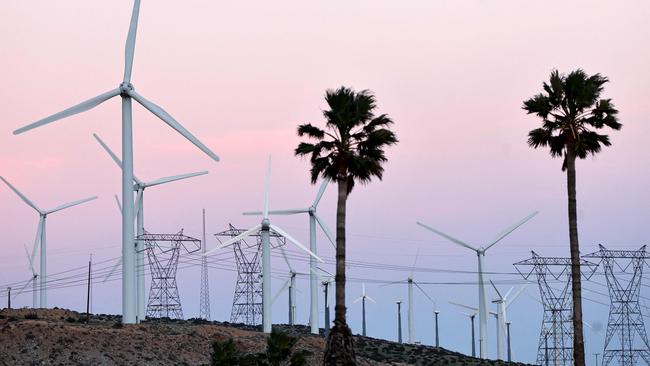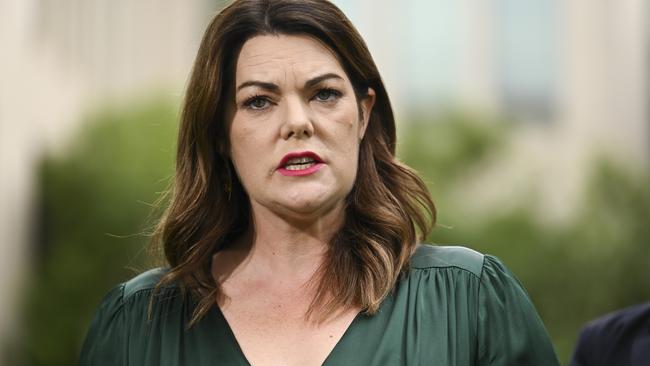Enabling greenwashing: ‘Climate Active Carbon Neutral’ stamp under fire for lacking ACCC certification
A Senate inquiry has taken aim at the government’s Climate Active Carbon Neutral labelling program, saying it is currently doing little more than enabling greenwashing.

A Senate inquiry has taken aim at the government’s Climate Active Carbon Neutral labelling program, slamming the initiative for promoting greenwashing, while the regulator said it could not give it a stamp of approval for the program because its rules were not clear.
The Climate Active label is being used by about 700 companies, products, buildings and events that pay an annual licence fee to call themselves carbon neutral with the government’s backing. It is administered by the Department of Climate Change, Energy, the Environment and Water (DCCEEW).
On Monday, the ACCC said the trademark certification process for the scheme had been suspended after several attempts at clarifying its rules.
“The ACCC has not made a final determination on the CTM,” ACCC mergers and digital division manager Tom Leuner told the inquiry, referring to the Climate Active Carbon Neutral Certification Trade Mark.
“We didn’t have clarity on the rules because they cross-referenced others. There was a bit of back and forth and they resubmitted the rules several times over a long period. Eventually they advised us that they were seeking to redo the rules and then review the whole scheme.
“They asked us to pause the assessment,“ he said, adding there was “nothing” currently stopping businesses from using the label.
“They don’t have exclusive IP use, but they can just keep using it in the meantime,” Mr Leuner said.
Documents on the Climate Active website say the stamp “confirms that a carbon neutral claim has met a robust standard and is a legitimate and visible stamp of approval”.
When asked by Greens senator Sarah Hanson-Young whether the statement was misleading, Mr Leuner sidestepped the question saying the regulator’s functions were in relation to consumer-facing claims by businesses.
“A government department’s claims, I’m not sure how that would interact with our, sort of, legislative functions,” he said.
Polly Hemming, a director at The Australia Institute, said the scheme facilitated greenwashing by allowing products or companies to be certified as carbon neutral through purchasing offsets, rather than cutting emissions.
“Climate Active needs to be referred to the Auditor General. There are so many administrative failures,” said Ms Hemming, who worked as a communications manager for Climate Active in 2019 and 2020.
“Not checking the offsets, EY being paid $1m by the department to carry out due diligence on the members while having those members as clients, while also assessing the veracity of the international offsets. There is so much that is wrong with that scheme.”

Ms Hemming argued the government’s scheme was encouraging greenwashing and misleading consumers into thinking businesses or products with the stamp were actively taking climate-positive actions, when that was not necessarily the case.
“It’s cheaper to pay a certification fee to Climate Active and to buy some offsets from a wind farm than it is to implement the technology that you need or go 100 per cent renewable, or change your business practice or change your business model. Effectively, it’s a really unfair situation for businesses who are trying to do the right thing.”
“If the government wants to keep a voluntary carbon offset scheme, then the most Climate Active can be described as, as it used to be, the National Carbon Offset Standard.
“All the department is saying is, these businesses have provided us with a list of their emissions for part of their businesses, and they’ve bought some offsets, and they may or may not be reducing their emissions across their value chain,” she said.
Last year, the Albanese government announced a review of the certification, originally introduced in 2017 and rebranded in 2019, with proposed updates including removing the term “carbon neutral” and implementing stricter reporting requirements.
Once that policy review is completed, the department would likely seek to re-engage with the ACCC, DCCEEW deputy secretary Jo Evans told the inquiry.
She added, however, there was nothing “unusual or improper” in continuing to use it as is.
“We take very seriously the use of our Climate Acive logo and we make sure that it is used in circumstances that comply with it,” Ms Evans said.
The department said members of the program had achieved “better emissions reductions than others” and that it was not aware of any company that had misused the trademark.
After the review is complete, all 700 businesses certified will be forced to go through a re-assessment process, Ms Evans said.
Senator Hanson-Young, who is chairing the inquiry, said corporations and businesses across the country including Energy Australia, Origin Australia, NAB, ANZ, and others were “claiming to their customers that they have green products, that they are carbon neutral. And they’re relying on this government stamp of approval.”
“And the government’s stamp of approval hasn’t even been properly certified,” she said. “Australian customers are fed up with greenwashing lies.”
Regulators such as the ACCC and ASIC have been clamping down on greenwashing, which involves misrepresenting the extent to which products or companies are environmental or climate friendly.
ASIC negotiated a $11.5m greenwashing penalty for superannuation giant Mercer for problematic claims, that is yet to be approved, and last week it also won its first court civil penalty action against Vanguard over similar claims.
But the inquiry heard the ACCC has no plans to conduct regular greenwashing reviews due to limited resources. That was despite its first and only internet sweep in 2022 finding 57 per cent of businesses were making potentially misleading environmental or sustainability claims online.
“We are not (considering it) … We certainly wouldn’t rule it out,” Rami Greiss, executive general manager of consumer and fair trading at the ACCC, said.
Mr Greiss said the sweep in itself had been a relatively resource-light process. But the follow-up checks and engagement required afterwards required significant work.
Following the 2022 sweep, the ACCC had to catalogue claims between vague, absolute, or not fully transparent and then systematically investigate each instance to determine if there were any issues.
Many businesses corrected their behaviours or had smaller issues that were resolved administratively, Mr Greiss said. Some larger businesses entered enforceable undertakings to change their claims. Others required more advanced investigations that are still ongoing.
“We were very mindful in this range of approaches to ensure that we don’t have the effect of green hushing,” he said.







To join the conversation, please log in. Don't have an account? Register
Join the conversation, you are commenting as Logout